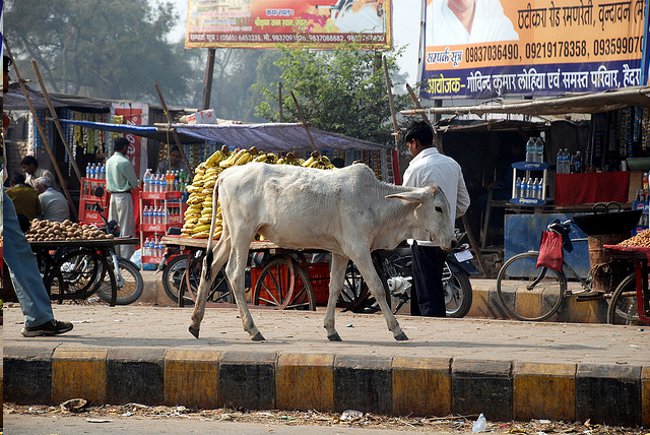Is Half an Internet Better Than No Internet at All?

From our content partner New America Media:
When Indian Prime Minister Narendra Modi came to Facebook in Palo Alto and hugged Mark Zuckerberg at a townhall, he went up several notches in cool.
The image of the two men hugging was splashed all over Indian media. But there’s no such thing as a Free Hug. Instead there’s Free Basics. Facebook has blanketed newspapers and billboards in India drumming up support for Free Basics. The ad budget, says one news report, is about one third of all its India revenue.
What’s Free Basics? It’s the new avatar of its old Internet.org. Facebook says it’s about providing millions of poor Indians with free access to basic Internet services.
When people have access to the Internet they claim, they also get access to jobs healthcare, education, communication. Zuckerbeg tells India it’s the right thing to do.
In a recent speech he stressed Facebook was 100 percent a supporter of net neutraility. “I think we should all make sure that we continue to push for access because I think that’s extremely important. I think we have a moral responsibility to look out for people who do not have the Internet,” he said.
Except Internet activists, academics, companies like Zomato say what Facebook and Indian telecom behemoth Reliance are teaming up to do is to create a walled garden where stuff they like and approve will be free. Things Reliance doesn’t like, e.g., Voice OVer IP, won’t
The Indian comedy sketch group AIB explains in a video that while Facebook is not charging people money to sign on and become partners what they are doing is creating a walled garden of select apps and services that people can access for free. Anyone can sign up, but Facebook has the right to accept or reject. And if the customer tries to leave this garden and go on to the rest of the Internet they get charged.
Look, we can’t afford it otherwise, says Facebook. We are not making money. We don’t even have ads in FreeBasics. AIB says “Put 4 million ads and then use that money to give everyone access to entire Internet with data limit instead 25 sites with no limit. That’s digital equality. “
The AIB guys say if FreeBasics had been around when Facebook was struggling to get off the ground against popular social networking sites like Orkut in India, they’d have been doomed. “Facebook is not trying to protect your rights. Facebook is trying to make sure there will be another Facebook again,” says AIB.
Indian entrepneur Mahesh Murthy says this is nothing short of digital apartheid. He writes “Unlike the rest of us who are all digitally equal, being able to access the full and complete Internet which has more than a billion sites on it, Facebook wants to offer our poor, our young and our future a few dozen sites, that’s all.”
AIB contends this is twisting the basic idea of net neutrality. “They are trying to define net neutrality as everyone being able to access the Internet. Whereas the truth is, actual net neutrality means anyone being able to access EVERYTHING on the Internet.”

Facebook is puzzled Indian netactivivsts are up in arms about is charity. It’s not selling ads. But all it’s really saying is its not selling ads yet. And collecting a lot of data, that it says it won’t use. Yet.Mahesh Murthy says that the real reason for this charity with strings is that Facebook, which is banned in China, has put a lot of its eggs in the India basket when it comes to growth. As it dukes it out with Google, Murthy says Free Basics is just a strategy to offer Facebook, but not Google at the mass poor people level.
As the deadline draws near for comments to India’s Telecom Regulatory Authority, Facebook is leaving no stone unturned. Opposition to Free Basics is being painted as elitist and unpatriotic. Facebook says we know that for every 10 people connected to the Internet, roughly one gets lifted out of poverty. We know that for India to make progress, more than 1 billion people need to be connected to the Internet.
Mark Zuckerberg wrote an editorial in the leadings Times of India touting the wonders of Free Basic and asked “Who could possibly be against this?”
But others are asking is net neutrality just a right for the West and a luxury for the rest. And must poor countries be told, be grateful, that half an Internet is better than no Internet at all?
Author Bio:
Sandip Roy is the author of "Don't Let Him Know." The above commentary first appeared as a radio piece for KALW.
From our content partner New America Media





























































































































































































































































































































